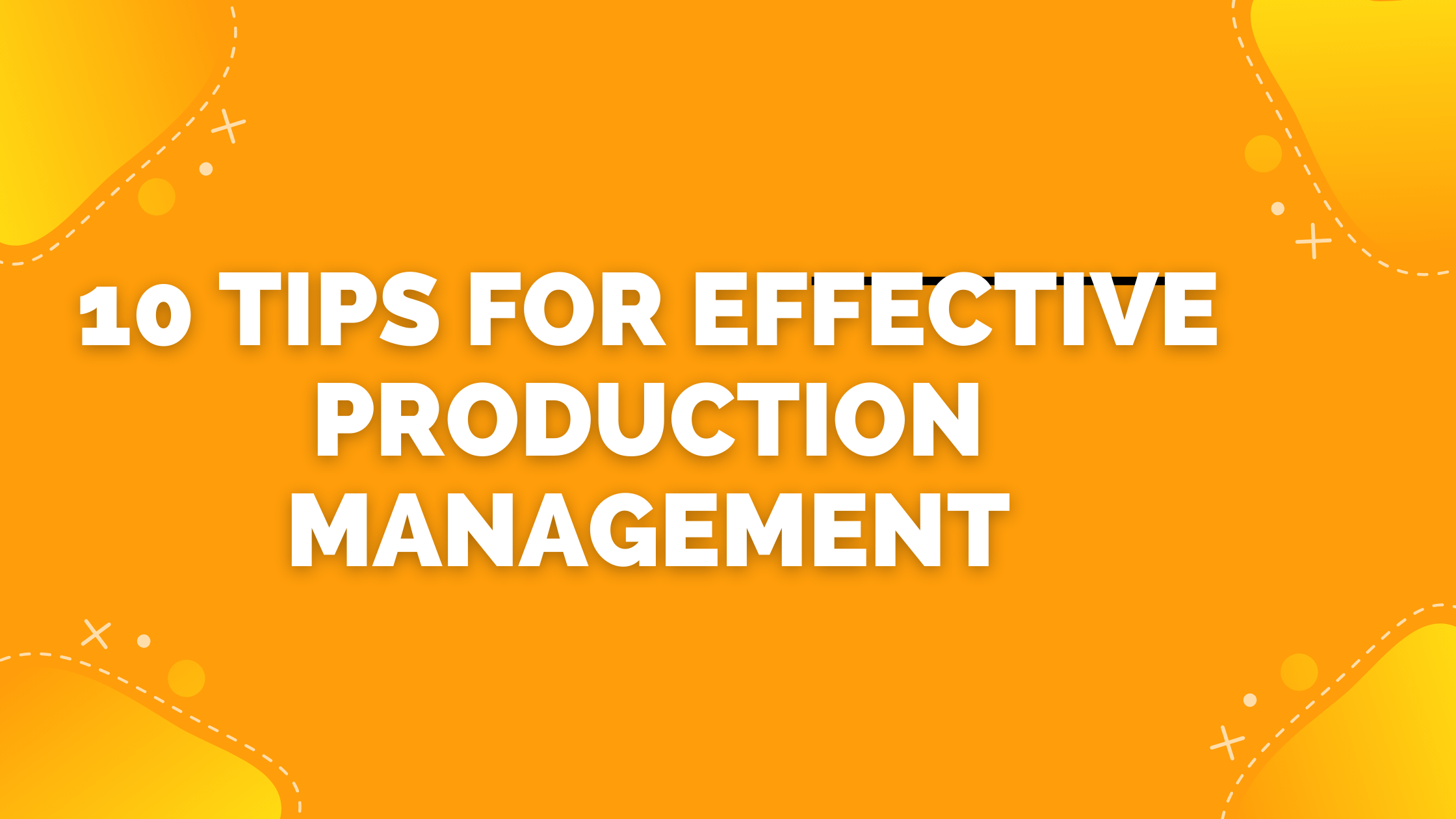Mastering the Art of Event Production Management: 10 Tips for Success
Introduction
Organizing and managing events can be an exhilarating experience, but it also comes with its fair share of challenges. To ensure a successful event, effective event production management is key. This article provides you with a comprehensive guide to mastering the art of event production management, offering 10 essential tips for success.

The significance of effective event production management
Event production management plays a vital role in the success of any event. It involves meticulous planning, coordination, and execution of various elements such as logistics, marketing, and attendee experiences. Effective management ensures smooth operations, timely delivery of services, and a memorable experience for both hosts and attendees.
Understanding the challenges faced
Event production management is not without its challenges. From tight budgets to complex logistics, event planners constantly juggle multiple tasks, ensuring that each aspect of the event aligns seamlessly. Unexpected issues, such as equipment failures or last-minute venue changes, can add further pressure. However, with careful planning and implementation, these challenges can be overcome.

Overview of the 10 tips for success
1. Setting Clear Objectives
Setting clear objectives for your event is crucial. Start by defining its purpose and aligning it with the client’s vision. Identify specific goals, such as increasing brand awareness or generating leads. Additionally, establish key performance indicators (KPIs) to measure the success of your event against these objectives.
2. Creating a Detailed Budget
Comprehensive financial planning is essential for successful event management. Create a detailed budget that considers all anticipated expenses, such as venue rental, staff wages, and marketing costs. Allocate funds to various event elements, ensuring each aspect receives the resources it requires. Lastly, always account for contingency plans to address unforeseen expenses.
3. Building a Solid Team
A successful event relies on a competent and coordinated team. Identify individuals with the necessary skills and expertise to handle different aspects of event production. Assign clear roles and responsibilities to each team member, fostering effective communication and coordination. Regular team meetings and feedback sessions are essential for ensuring seamless collaboration.

4. Securing the Perfect Venue
Selecting the right venue is paramount to the success of your event. Evaluate various options based on their suitability for your event requirements, capacity, accessibility, and ambiance. Negotiate contracts that favor your budget and desired amenities. Conduct site visits to assess if the venue meets all your needs and aligns with the event’s theme.
5. Ensuring Seamless Logistics
Develop a detailed logistical plan that covers transportation, accommodation, and catering. Coordinate with vendors and suppliers to ensure smooth operations. Streamline registration processes to prevent any delays or confusion. Consider utilizing event management software to streamline logistics and enhance efficiency.
6. Crafting an Engaging Event Marketing Strategy
An event marketing strategy is essential for attracting attendees and creating buzz around your event. Utilize a combination of digital and traditional marketing channels to reach your target audience. Create compelling content and promotional materials that highlight the unique aspects of your event. Leverage the power of social media platforms to generate online engagement and maximize exposure.

7. Leveraging Technology for Efficiency
Incorporate technology to streamline event management processes. Adopt event management software that helps with attendee registration, data analysis, and feedback collection. Utilize mobile apps to enhance attendee engagement and provide real-time updates. Consider embracing live streaming and virtual event options to expand your reach beyond physical limitations.
8. Collaborating with Reliable Partners and Suppliers
Selecting trusted vendors and suppliers is vital to ensure the smooth execution of your event. Choose partners who have a proven track record in delivering high-quality services. Establish clear contracts that outline expectations, deadlines, and payment terms. Maintain regular communication with your partners and follow up on any outstanding matters.

9. Designing Captivating Event Experiences
Create captivating event experiences through thoughtful and engaging design. Conceptualize themes and décor that align with the event’s objectives and target audience. Incorporate interactive elements and activations that encourage attendee participation. Enhance the overall experience through the integration of technology, such as augmented reality or virtual reality.

10. Implementing Effective Risk Management
Thorough risk assessments are essential for identifying potential issues that could disrupt your event. Develop contingency plans to address these risks effectively. Ensure compliance with legal and safety regulations to protect both attendees and event organizers. Regularly review and update risk management strategies to stay prepared for any eventualities.

Summary
In summary, mastering the art of event production management requires meticulous planning and execution. By following these 10 essential tips, you can enhance your chances of hosting a successful event. Always remember to set clear objectives, create a comprehensive budget, build a competent team, secure the perfect venue, ensure seamless logistics, craft an engaging event marketing strategy, leverage technology for efficiency, collaborate with reliable partners, design captivating event experiences, and implement effective risk management.
FAQs (Frequently Asked Questions)
To further assist you in your event production management journey, here are some frequently asked questions:
- Q: How early should event planning start?
- Event planning should ideally start as early as possible to allow ample time for thorough preparation. Depending on the size and complexity of the event, planning should begin at least six to twelve months in advance.
- Q: Is it necessary to hire an event management company?
- Hiring an event management company can greatly alleviate the burden of event planning and management. They bring expertise, experience, and a network of reliable contacts, ensuring that your event runs smoothly. However, for smaller events or those with a limited budget, it is possible to manage the event internally with careful planning and coordination.
- Q: How do I select the right event venue?
- When selecting an event venue, consider factors such as capacity, location, amenities, and cost. Ensure that the venue aligns with your event’s theme and requirements. Conduct site visits to evaluate its suitability firsthand and negotiate favorable contracts to secure the best possible deal.
- Q: How can I ensure attendee engagement throughout the event?
- To ensure attendee engagement, plan interactive sessions, workshops, or networking opportunities. Utilize technology such as event apps or gamification to encourage participation. Regularly communicate with attendees before, during, and after the event to maintain engagement and gather feedback.
- A comprehensive event marketing strategy should include a mix of digital and traditional marketing channels. Create compelling content and promotional materials that highlight the unique aspects of your event. Leverage social media platforms to reach your target audience, engage with them, and generate excitement. Develop partnerships with relevant influencers or sponsors to expand your reach. Measure the success of your marketing efforts through analytics and adjust strategies accordingly.



